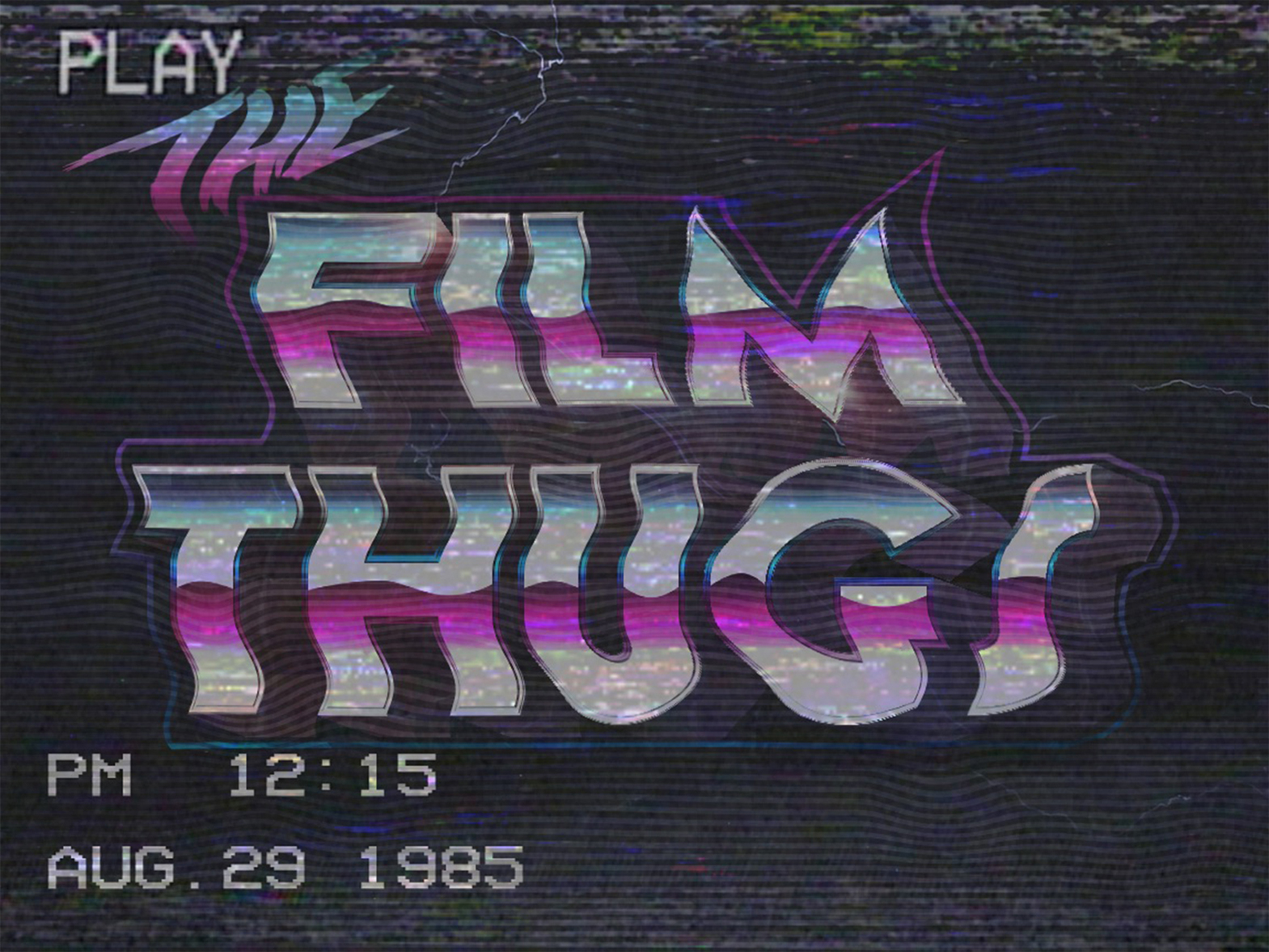Episodes

Wednesday May 02, 2012
Jim Reviews Atlas Shrugged: Part 1
Wednesday May 02, 2012
Wednesday May 02, 2012
Atlas Shrugged: Part 1
How do I even approach reviewing this movie? Honestly, how? Ayn Rand is such a staunchly polarizing figure that any discussion of her work must, for some utterly baffling reason, go into personal opinion on her. She is the woman behind objectivism who cannot be objectively discussed. The irony of this is not lost on me.
For starters let me explain how my mind works when it comes to politics. I find most political discussion to be a waste of time. A majority of the people who engage in it have no real interest in sharing ideas, rather they are looking for affirmation. Regardless of whether that affirmation comes from the rabid agreement of someone who is “on their side” or the shouting down and marginalization of someone who is “on the other side.”
I only see one side with people who vary differently on how to move forward.
A few years back I read a comment by David Mamet that sums things up for me pretty well. He said something to the affect of their being a Jewish law or idea that one should never debate an issue unless they could first sit down with the other person and describe that persons side of the issue to them in a way that that person would agree with. No straw man, no slippery slope, no spin, just an honest recitation of their side.
Our current state of political discourse is sickening because people don’t do this. Instead they have allowed cable news shows to let them think that shouting down and embarrassing the other person is acceptable and somehow makes them win. Oh, and before you go off on a “Yeah, Fox News, blah, blah, blah” jag, realize that both sides do it. And before you respond, “Yeah, but Fox News is so much worse, blah, blah, blah,” realize that you are saying this sort of behavior is ok but only if you agree with the person doing it. This is a touch hypocritical, no? And before you slam me for being a brainwashed Fox News whatever, know that I don't watch TV news. It's all biased bullshit. I read my news and check multiple sources on each story I read so that I can at least attempt to put together what actually happened. I despise any news agency that attempts to tell me how to think about an issue when reporting the news.
So, let’s discuss the film and the author, then just the film, shall we?
Ayn Rand… to some she is a visionary who developed a brilliant philosophy that allows people to develop their own potential. To others she is a heartless, godless crone who made the world a worse place with her selfishness and long winded writings.
To me she is a woman who saw firsthand the horrors of Stalin and embraced the ideals of America to an absurd degree. I think that some of her ideas are fantastic and, if applied properly, can be very beneficial. I also think that she goes too far with them in a way that borders on parody.
Let’s take a quick look at her background. She was born in Russia in 1905. Her father was a pharmacist who owned his own business as well as the building that housed it. When the Russian Revolution struck the Bolsheviks seized the business, and her family was forced to flee to Petrograd (formerly St. Petersburg). Growing up her family was destitute and often on the verge of starvation.
She was able to attend college, but just before graduation she, along with other “bourgeois” students were purged from the university. She was among a group of students who were only able to graduate after complaints from foreign students led to them being readmitted.
Later she came to America on a student visa and cried, what she called, “tears of splendor” at how amazing it all was.
Now, lets step back and analyze this. Her family lost everything to collectivism, she had her educational opportunities taken from her not because of a lack of ability, but due to the politics of the Soviet Union, and saw, in America, what she viewed as a better way.
What other form of philosophy could she develop? I completely understand where her ideology comes from. Hell, in this context it makes perfect sense. This was a woman who saw a large government legislating equality as a terrifying thing that would ultimately strip people of their individuality, rob people of their ambition, and ultimately lead to an oppressive state where nobody can raise themselves up. She feared it because she saw it firsthand. All she did was take the history she lived and grafted it onto America. Survive what she survived and then talk shit about her…
However, having a hard life doesn’t mean you’re right.
While I understand what she means by “The Virtue of Selfishness” I cannot agree completely. I do think that we need to have each others backs, so to speak, and that cooperation and compromise are the foundation of any civilization. But I do agree with her in that I don’t trust anyone who uses the word “fair” because as basic a concept “fairness” seems, it is really quite complicated. You see, “fairness” is entirely in the eye of the beholder. Does fair mean equal? Does fair mean earned?
I do love some of the characters she creates because of their unflinching individualism and self-reliance, but even I get a bit tired of them at times.
So, what about this movie?
As someone who labels himself a classically libertarian borderline anarchist (I enjoy labeling myself with as many fancy words as possible) who views the major political party system as akin to choosing a professional sports team (as Mr. Campbell puts it, the engine just burned out and we are debating what color to paint the car) which essentially means that I want to be left the hell alone., I find this films ideas as fascinating as I find the film itself bad.
This is not a good movie. It just isn’t.
Let’s start with the plot. Atlas Shrugged: Part 1 is set in a future where the world is falling apart. Oil shortages have made cars and planes too expensive so we turn to the railroad. As trains have become the dominant form of transportation, of course all the track has fallen into disrepair (because, you know, that happens when something becomes really popular, we just stop taking care of it). Henry Reardon has developed a new metal that is stronger and cheaper and would allow all the railways to be repaired at a low cost.
But he doesn’t want to share and nobody likes him for it. He will sell it at a fair price, and will work with anyone who wants to work with him, but he isn’t willing to let other people make his signature steel, so he is bad.
As this is Ayn Rand’s world, a world which is populated exclusively by people who can do things and make the world work, and people who can’t do things and conspire to bring down those who can, the machinations of government begin to work to bring down Reardon.
This is a cartoonish world where government basically takes over and dictates who can own what, who they can sell things to, and how much they can charge. It is full of rich people who believe in equality… as long as they still get to have pretty things and live in comfort. The movie addresses this in a very ham fisted way. You have a character, in the course of a few minutes, chastise his sister/business partner with the statement, “You can’t just take everything away from people who need our help,” before ordering an underling to “MOVE” as he crosses his path out the door. That’s right, we need to help people as long as they don’t interfere with what we want to do right now!
While this is going on a mysterious man named John Galt lurks in the shadows, offering exceptional people a chance to be exceptional away from all the useless ones that sit and conspire against them.
Essentially, this is worst-case scenario, slippery slope stuff. Keep making it harder for those who do the work to do the work and they will take their ball and leave, then were would we be?
At least I think that’s what it’s about. Really, I am not sure because the dialogue is a bunch of babbly exposition that is hard to follow for the simple reason that it is boring.
So we get a lot of the yap yap and a lot of broadly drawn caricatures in place of people and somehow I am supposed to give a crap what happens. Well, I don’t.
SPOILER ALERT: Oh, and the best part is that near the end the two main characters find an engine that runs on atmospheric energy, left completely intact in a barely hidden room in a long abandoned factory. That’s right, atmospheric energy. Might as well run on pixie farts and unicorn tears. END SPOILER ALERT
It’s not all bad. I mean the acting is fine (not great, not particularly good, just fine) and it looks very good at times (while at other times it looks like a SyFy production), but by and large it is just… flat.
It’s flat because Rand is a philosopher. Yeah, she wrote some stories that have had quite an impact, but she isn’t really a storyteller at heart. That is fine on the page, but on the screen it just doesn’t work. Movies are visual and feed on story, Rand is cerebral and feeds on words and ideas. The two don’t work together. Not that movies can’t be smart, but they have to be smart in a different way. I loved the book “The Fountainhead,” but found the movie laughable about 90% of the time. Philosophy is not cinematic unless your name is Terrance Malik.
The question I have is simple, why even bother trying to make a film out of this. It is expansive, it is cerebral, and it will draw predetermined responses from people. Those on the right will forgive more than they should and people on the left will hate it no matter what. It’s not so much a movie as an attempt to create some sort of rallying cry.
It doesn’t.


No comments yet. Be the first to say something!